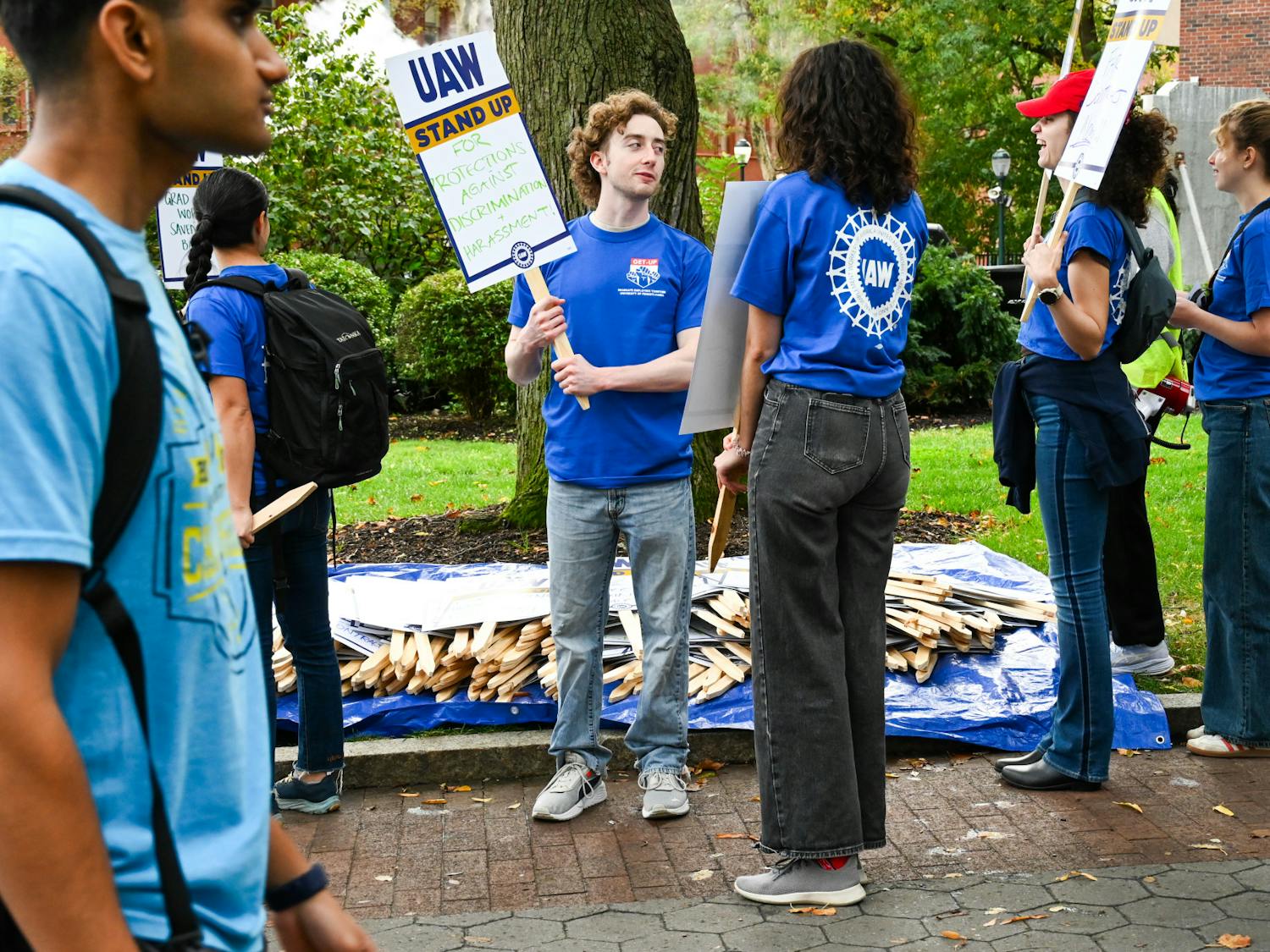University of North Carolina at Chapel Hill professor Jill Fisher discussed how inequalities drive paid participation in clinical trials at a Penn event on Tuesday.
The virtual presentation was part of the Penn Program on Regulation’s year-long Race and Regulation Series, which seeks to investigate how government regulations have fostered racial inequities, and how changes in these policies can help to diminish racism in American society. The event, titled “How Race and Social Inequalities Influence Healthy People’s Paid Participation in FDA-Required Clinical Trials,” was co-sponsored by the Penn Law Office of Equity and Inclusion, the Leonard Davis Institute for Health Economics, and the Penn Medicine Center for Health Equity Advancement.
Fisher, who is a professor of Social Medicine at UNC, researches how social inequities are produced and exploited by commercialized medicine in the United States. The event focused on how clinical trials are conducted and illustrated how economic insecurity and racial discrimination often lead healthy volunteers to take part in Phase I clinical trials.
Phase I trials are the first in a three-step process to getting a drug approved by the Food and Drug Administration. They typically include 20 to 100 healthy volunteers, or people with the disease or condition being studied to better understand safety and dosage, according to the FDA. Trials prioritize healthy participants, who are often required to stay in residential research facilities for days or weeks at a time, Fisher said.
Healthy volunteers are involved in testing new drugs because they are easier to find than sick participants and can more easily bounce back from adverse effects, Fisher said. Healthy participants are also able to help “separate the signal from the noise,” because when unhealthy patients are used and have diseases or other symptoms, it is difficult to determine if the drug or the disease is causing these adverse effects.
Research institutions frequently use financial incentives to recruit healthy participants for Phase I research, Fisher said. Her research focuses on who participates in Phase I research, and why they do so. She conducted her ethnographic research by visiting six different research clinics across the United States. She found that Phase I trials often overrepresent people of marginalized races and ethnicities because they are driven to participate in these experiments by financial need.
Fisher found that participants end up counting on clinical trials as a source of income and keep coming back to try new clinical trials. She also found that over the past few decades, the financial incentives offered to participants have decreased.
“The more people who want to participate in clinical trials, the more it drove down compensation that companies were offering to participants,” Fisher said.
Professor Dorothy Roberts talks dismantling the child welfare system at Penn event
Penn Law students revitalize club to petition against University-sponsored travel to Israel
Fisher argued that since healthy participants are required in drug development, it is important to figure out how to improve the system in the future. She believes that participants should be offered better financial incentives and that companies should be more cognizant of the racial disparities in their study populations. Larger systemic issues must also be addressed to increase the financial stability of marginalized groups who may have no choice but to participate in clinical trials, she added.
This series will continue with a talk about race and privacy regulation from Penn Law professor Anita L. Allen on Feb. 9, 2022.









